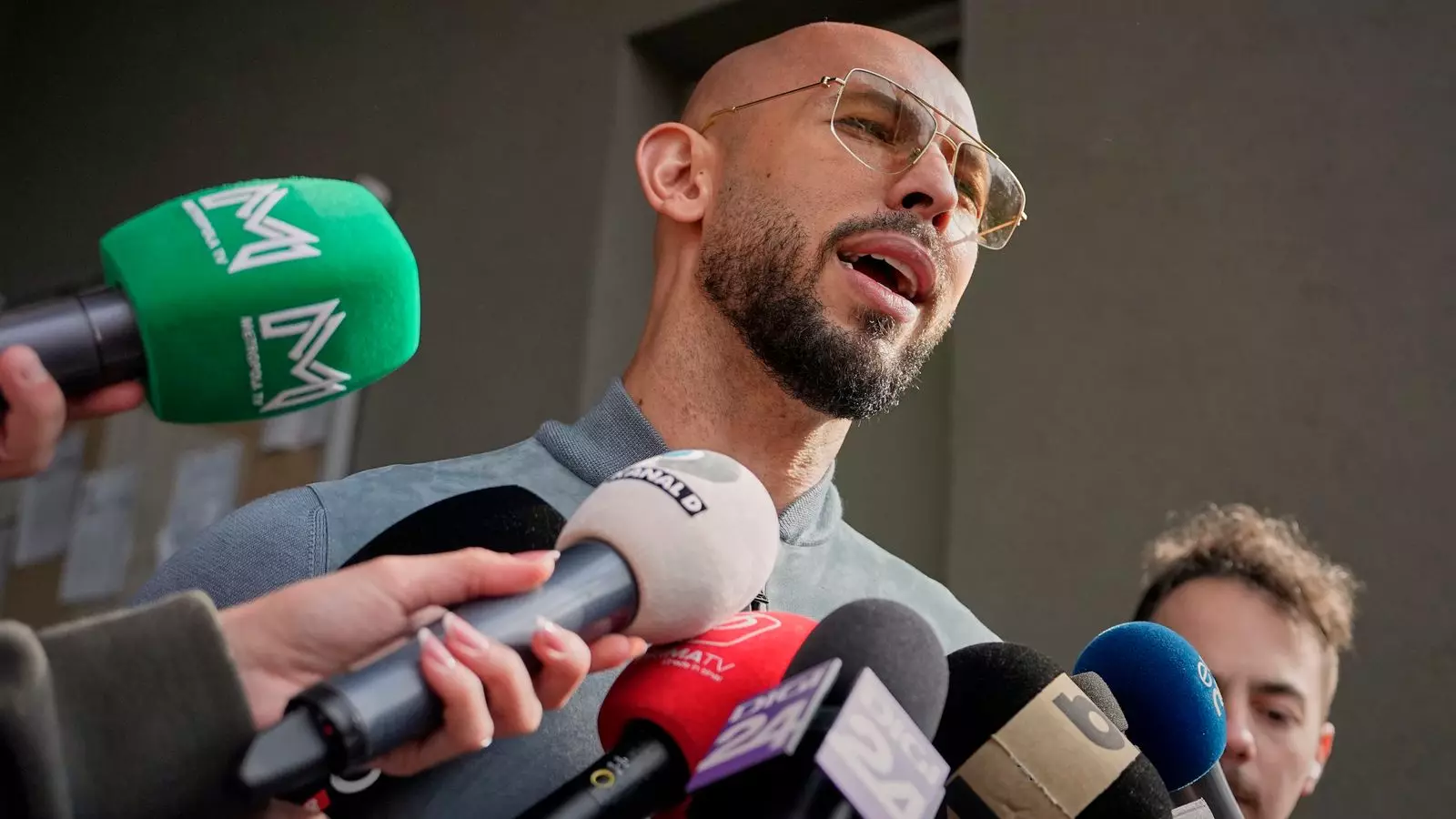Social media has permeated every facet of our lives, but the unsettling consequences manifest prominently in the realms of education. Recent findings from a survey conducted by the NASUWT teaching union, involving over 5,800 educators, bring to light a disturbing reality: nearly 60% of teachers believe the pervasive use of social media exacerbates behavioral issues among students. This isn’t merely an issue of polite discourse or classroom etiquette; it represents an escalating moral crisis that we can no longer afford to ignore. The apparent glorification of misogyny, perpetuated by influencers, casts a long shadow over the ideal of nurturing civilized young minds.
Influencers and Ideologies
The spotlight intensifies on figures like Andrew Tate, whose controversial presence on social media incites troubling discussions around masculinity and gender roles among impressionable youth. It’s alarming that educators report incidents of young boys rebuffing female authority, simply because they are female. What does it say about our society when children, still forming their worldviews, adopt a binary of masculinity versus femininity devoid of respect or understanding? The implications are staggering—and herein lies the crux of the issue. Influencers wield potent sway; when their platforms propagate toxic ideologies, it can lead to damaging outcomes in social behavior and interpersonal relationships.
Voices of Concern
In the backdrop of this growing concern, political figures like Sir Keir Starmer are attempting to rally awareness against this epidemic of hatred and misogyny. Discussions aimed at preventing young boys from slipping into an “internet rabbit hole” represent a crucial step, yet they often feel like mere Band-Aids on a festering wound. The tragic narrative shared by Tory leader Kemi Badenoch regarding her cousin’s suicide underscores the profound mental toll that unchecked digital consumption can exact—not only on children but adults as well. If even those of a certain age find themselves falling prey to addictive cycles driven by harmful content, how can we expect our youth to navigate this treacherous terrain with any discernment?
The Hard Truth of Technology
The Conservative Party’s push for banning mobile phones in educational settings is a direct acknowledgment of the destructive role that social media plays in contemporary learning environments. It’s a decisive step, yet it begs the question: Will any measure truly be effective if not paired with enriched educational initiatives that champion empathy, respect, and critical discourse? We are living in a time where social media can amplify the worst aspects of humanity, making it essential that educational discussions proactively attempt to dismantle toxicity rather than merely react to it.
A Call for Collective Action
As highlighted by Patrick Roach, general secretary of NASUWT, the clarion call for collective action involving schools and various agencies is more crucial than ever. However, to simply request collaboration without actionable frameworks or a roadmap risks falling into insignificance. The challenge lies in fusing traditional education with modern realities—a curriculum that not only teaches academic skills but also stress-coping mechanisms, media literacy, and emotional intelligence. It’s time that educators, policymakers, and society at large come together, not just to protect children from existing harms but to fortify them against future risks.
The Education-Empowerment Link
Ultimately, viewing education as an antidote to hate is a riveting perspective. Yet the classroom ought to be more than a refuge from negative influences; it should serve as a launchpad that empowers students to challenge hateful rhetoric openly. Critical thinking must go beyond textbook answers to foster discussions that help students unpack the complexities of gender, identity, and the ramifications of online behavior. Emphasizing empathy, understanding, and respectful dialogue can render classrooms as bastions against the tide of ignorance that seems to be swelling.
In a society grappling with divisive ideologies, our approach to education must evolve. If we fail to confront the moral decay spurred by social media, we risk losing not only the integrity of our classrooms but the very fabric of our future. This is not just an educational issue; it’s a clarion call to preserve humanity amidst the cacophony of toxic influences that threaten to normalize hatred and intolerance.


Leave a Reply